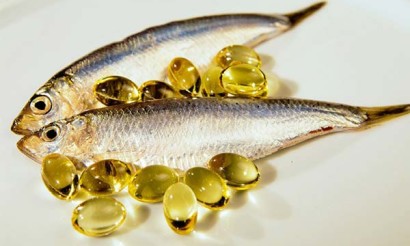How flax seed affects the human body
Flaxseed is valued as a vitamin supplement and medicine. In small unsightly seeds hidden treasure trove of useful substances. They are recommended to be introduced into the diet to slow down age-related changes, restore intestinal function, normalize hormonal balance, weight control.
Useful properties of flax seeds
The delicate blue haze that creeps over the field is flax in bloom. It is grown on an industrial scale not only for the production of natural fabrics. A very valuable component is also the seed, which has long been used for culinary and medicinal purposes.

The composition of the product:
- The entire line of B vitamins;
- lecithin;
- iron;
- copper;
- calcium;
- phosphorus;
- zinc;
- manganese;
- sodium;
- selenium;
- enzymes;
- mucus;
- flavolignans;
- pectins;
- anthocyanins;
- tannins;
- enzymes;
- Omega-3, 6, and 9 fatty acids;
- flavonoids;
- polysaccharides.
Important: You can only get the beneficial substances by thoroughly crushing the seeds or chewing them. If you swallow them in their whole form, they will be eliminated from the body almost in their original form.
Flaxseed is most often used in the form of flour or given preference for flaxseed oil if one wants to dress a salad of fresh vegetables.
Flaxseed is recommended to introduce in the diet in cardiovascular disease, during menopause, female ailments, malfunctioning reproductive system, gastritis, private inflammatory processes and increased blood clotting.
Polyunsaturated fatty acids are important for maintaining the elasticity of blood vessels, proper growth and development of the growing body. With antioxidant and estrogenic properties, flax seeds reduce the risk of cancer. Dietary fiber in their composition accelerates the removal of toxins, excess fluid and reduce cholesterol levels. Flaxseed is recommended for diabetes, as it slows down the flow of sugar in the blood.
The product has an excellent effect when used during weight control programs, providing the body with the necessary elements and preventing the deficiency of micro and macronutrients. The product normalizes the functions of the digestive system, is used for the prevention of liver disease and rehabilitation of patients in the postoperative period.
The daily rate for an adult is about 2 tablespoons of seeds per day.
Contraindications to use is individual intolerance, hyperkalemia, exacerbation of gastrointestinal diseases, stones in the urinary and gallbladder, lack of iodine.
Ways to use flax seeds
In cooking, flour or ground seed is used. It is added to baked goods, salads, yogurts. To lose weight, it is enough to eat 1 teaspoon of seeds a day. They are taken in the morning, on an empty stomach, chewing thoroughly. The effect will be visible in 2-3 weeks, since the product has a cumulative effect.
It is worth considering: For therapeutic purposes, flax is consumed according to the ascending principle, in which at first not more than 1 tsp is eaten. Spoon, gradually the rate is brought to 2 tablespoons. A break between courses of treatment should be 2-3 months.
Also ground seeds are added to porridges, as an additional ingredient introduced into kissels, smoothies, muesli.
For therapeutic purposes flax is used to eliminate intestinal parasites. Lignans contained in the product cause the death of worms at any stage and their removal from the body. For ascarids, a mixture of flax and cloves is more effective. At the same time the intake of the product gets rid of constipation.
Introducing flaxseed into the diet, it should be taken into account that it is a perishable product that cannot tolerate direct sunlight and constant access to oxygen. Grind it in portions, just before use, store it in a closed container with a tight-fitting lid. It is best to take a glass jar and put it in a cool place.
Observing the recommendations for storage and use of flax seeds, you can support your body, improve immunity and get great benefits from the product.
«Important: All information on the site is provided solely for introductory purposes. Consult a flaxseed specialist before applying any recommendations. specialist before applying any recommendations. Neither the editors nor the authors shall be liable for any possible harm caused by materials."















